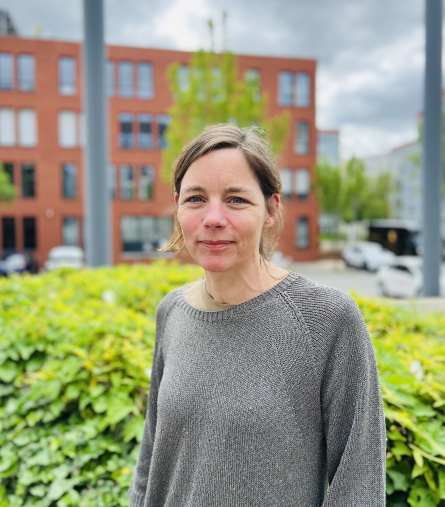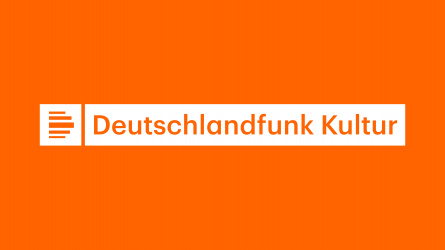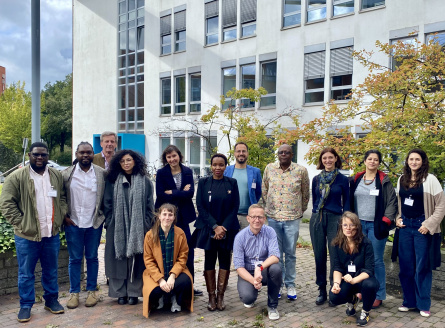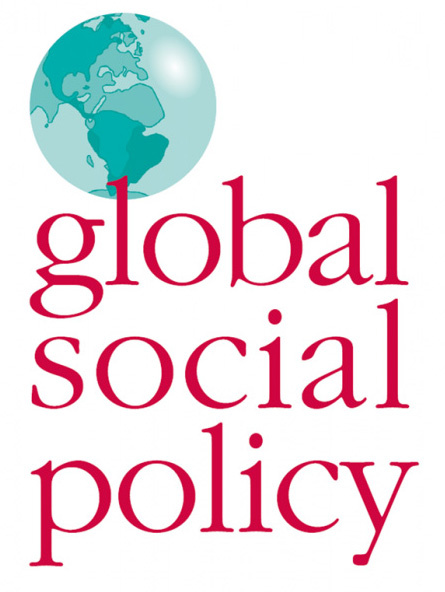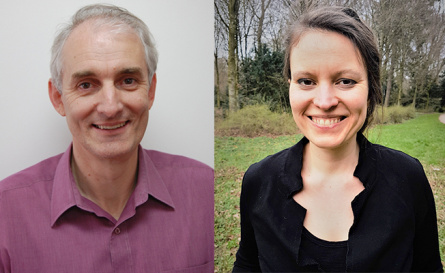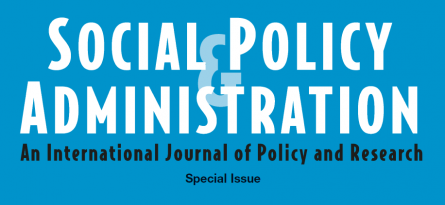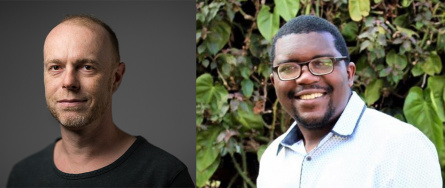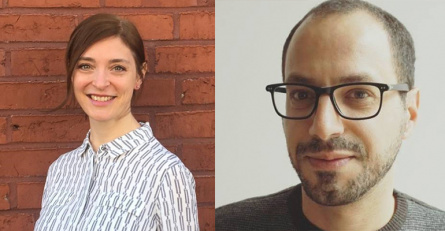Kressen Thyen and Roy Karadag have investigated why Tunisia is holding on to subsidies despite international criticism, while Egypt has undertaken reforms. In the interview, they talk about their findings, which they have recently published.Who is benefitting most from food subsidies in Tunisia and Egypt – the poor, or the elites?
Kressen Thyen: There are several ways to answer this question, I suppose. But first, let us look at how that is done: Public authorities have acted after World War II in different spheres to lower and stabilize the price of food, be it by setting incentives for peasants to produce wheat and other products for local markets, by providing inputs to peasants to make that production possible, and for some time even by distributing and redistributing land to smallholders. Plus, favorable price policies stabilized the profit expectations of peasants, millers and traders and secured deliveries of enough food into the cities where most of that food is consumed. While all of these economic actors also profit from the state’s regulation of food markets, the main beneficiaries would still be the urban poor.
Roy Karadag: Well, with that question, one already gets to the tricky aspect of having systems of food subsidization and the ways it has been contested since the 1980s. And that contestation lives with these stark contrasts, having the poor on the one side and the elites on the other side. And since those first studies done under the purview of the World Bank in the early 1980s which academically produced the field of food subsidies in Egypt, for example, that was very much the focus: arguing that food subsidies do not benefit the poor as much as they do richer people.
Kressen Thyen: Of course, that is much more complicated and cannot be put in these general frames, as the question of ‘benefitting’ definitely needs further qualification. What is obvious is that people and families from middle and higher social classes have more money and can buy more food, and members of these groups have, of course, also bought foodstuff to benefit from cheap prices. In the language of targeting, yes, that has always been a bone of contention. But then again, given that poor people do not have as much money, they are much more dependent on these cheap prices in order to get food on the table for themselves and their children. So, in relative terms, the poor benefit more or most from food subsidization. Because the alternative to buying cheap bread, rice etc. is to suffer from undernutrition and hunger.
Food subsidies have been criticised as being an expensive and insufficient measure to reduce poverty. Do you agree with this critique?
Kressen Thyen: Well, in this case, too, the issue is one of appropriate and fair framing. Food subsidies are not a good tool if you really aim to reduce relative poverty and to redistribute resources. But then again, are they supposed to do that? Rather, they are tools to help poor people having access to enough food on the table. So, one may rather frame it that they do not reduce relative poverty, but that they are there to fight and overcome hunger. And with respect to the latter, North African countries have seen enormous improvements with respect to hunger and malnutrition since World War II.
Roy Karadag: Yes, I mean, sure you can criticize the ways that material goal of eradicating hunger translates into specific public procedures of price-setting, of directing agriculture and providing infrastructures of stores and bakeries to reach the poor. But the overall goal is to have affordable food, and I do not see any problem with that goal, especially in countries that are much poorer than here in central Europe, for example.
Kressen Thyen: One will be able to set up comparisons between poor countries in the 1950s and their developmental trajectories until the 1980s and today. And then, you easily find successful ways out of poverty where states did not have to rely on similar forms of food subsidization as in North Africa. And where states have rivalling forms of social safety and poverty alleviation. But that is no justification to attack subsidies in contexts where poverty has remained pervasive.
Roy Karadag: One need not categorically reject attempts to have better targeting or to be aware of the financial limitations of food subsidization. That has been accepted ever more since the 1970s and the connection between high subsidy expenditure, budgetary pressures and mass protests. Countries that ultimately depend on having to provide cheap food will run serious legitimacy deficits if they cannot control prices – as in this region where countries have become food import dependent since the 1960s and 70s. That is a problem, and it would, of course, be better if there were enough other forms of social security and welfare. But that does not mean that one can just get rid of food subsidization and the public promise of affordable food and nurturing the poor.
There are alternatives to food subsidies on the “social policy tool market”: very popular among these are social cash transfers that became widely applied in many low- and middle-income countries. Would not these be more targeted to support the poorer parts of society than food subsidies (– at the end of the day there are only so many loafs of bread you can eat)?
Roy Karadag: I would argue that this global drive toward cash transfers is nothing but a financial compensation for all those contexts when there are no other welfare policies available or when those are not wanted and do not fit the dominant developmental scripts. Yes, I am for more money in the pockets of poor people, but the reason this idea is becoming hegemonic across all developmental organizations is that it does not get into the way of liberal welfare understandings. But what would the difference be to existing welfare benefits when you have to spend that money for more expensive food? I doubt that.
Kressen Thyen: It is questionable to assume that such cash transfers will actually be more redistributive than existing frameworks. If the critique toward food subsidization is: They are not redistributive enough and stabilize highly unequal social settings, then one should also confront cash transfer ideas with that same critique and question whether they are truly redistributive. And that is just one dimension. Think also of the consequences of targeting and the drive to ever more and better targeting to really make sure that only the needy receive those payments. The registration of the very poor under conditions of significant parts of the population facing structural poverty is very tricky, needs a lot of financial and bureaucratic resources and needs to be legitimized.
Roy Karadag: The other overarching issue or argument focuses on the liberalization of agriculture and food markets: this is what actors like the World Bank and proponents of neoliberal ideas are after, their argument, promise and hope being that liberalized markets will bring more and, ergo, cheaper food to the cities, as the existing inefficiencies and crony networks would be broken up, competition would rule, and that there would be enough incentive to get food to the urban poor at the right price level. This is the liberal promise: but one should seriously question this claim. Why should food be as cheap in the future without public subsidization? When countries are dependent on food imports, have free floating currencies, and when agricultural producers earn more with cash crops for international markets. You need a lot of trust and belief in market mechanisms making sure that there would be no price escalation against which one would offer no price cushion, any longer.
Kressen Thyen: Think of the loss of legitimacy this would entail, and of the potential for mass protests. As we spell out, there is a concrete tragic of food subsidization: If you offer too much, you will run into budgetary and financial pressure, in particular when you cannot control the price of food due to your position in global food and agriculture markets. But if you reduce them too much to counter that budgetary pressure, you run the risk of triggering food riots. Experts critical of subsidies want to get countries out of that food subsidies trap. But they cannot guarantee another trustworthy future with stable food prices in a world without subsidies.
The international pressure to abolish food subsidies was high for many years if not decades, and the costs of the subsidies are very high and volatile. Why do Tunisia and Egypt do stick with it anyway (– to a greater and lesser extent)?
Roy Karadag: Well, because of their enormous symbolic value in North African societies. Hunger and undernutrition have been devastating in times of economic crises and war in past centuries. And past collective exposures to hunger continue to determine what people expect of their governments, affordable food being very high on the agenda.
Kressen Thyen: Don’t forget that this is also the only social policy tool with which the state actually reaches the entire populace. That is not the case for other policy fields in which the reach of the state is much more limited, for example in labour policy and social security. Informal labour relations are just too prevalent in Egypt and Tunisia, and formalization may be a fine goal, but it is very complicated to realize under the existing conditions. The same goes for all those promises of universal healthcare and public schooling, of child welfare and social assistance. But everybody comes to the market to buy and consume food. Which is why you reach everybody with these measures. And the fact that ‘bread’ was also one of the big rallying slogans in the mass protests of 2010 and 2011 emphasized this symbolic value and its place in society. People do not want to relieve the state of its obligation to guarantee affordable food.
Roy Karadag: One should keep in mind that inequality has been increasing over the past century, that there is enormous pressure across middle classes, who struggle to keep their social positions. The danger of impoverishment is very much felt by middle classes who join and participate in mobilizations for maintaining subsidies. And, as I said, food is a symbolically much more relevant field than, e.g. in transport and energy, where states cut much more subsidies. There, too, there were protests against high costs of living, but not with that same fervour as usually happens in context of bread price increases.
Kressen Thyen: So, that was now all limited to expectations among the populace and issues of legitimacy beliefs and mobilization capacities. The other dimension is then on how that translates into actual government policies to live with that kind of pressure and generalized expectations. And, here, we enter the field of internationalized reforms, of the modes through which pressures from above and below are mediated by ruling elites. And, in brief, this has mostly been in the mode of brokerage, meaning ruling elites muddling through these pressures, trying to maintain enough leverage vis-à-vis both sides.
Roy Karadag: And then, with the regime changes and new internationalized politics after a first couple of transitional years, paths actually diverge, and there is much more movement in Egypt and none, anymore, in Tunisia, as we lay out in the article. But, more movement did not mean abolishing them, just liberalizing more than others to get all that praise from expert communities.
In your paper you write a very strong sentence: “The internationally recommended adjustment of North African welfare systems to more market-friendly economic policies is empirically tied to violence and repression.” Could you explain that please? And does that mean that IOs and other international actors should rather stop pushing towards welfare state reforms in Northern Africa?
Kressen Thyen: The linkage between violence, state coercion and autocracy, on the one hand, and economic liberalization, on the other hand, is a quite established one. Not just for this region. And in this more concrete case, yes, you have experts calling for the implementation of policies that are not popular and would not survive a democratic process. That is also not specific to these countries: welfare state retrenchment is always a tricky affair and usually leads to protest mobilization and contestation. That is one reason why Tunisian politics could not be steered in the post-2013 years to move to further subsidy cuts or to even think of more targeting measures. And it is one big factor in overcoming that huge gulf between IO demands and popular demands. That was only overcome in the context of crushing activist space and oppositional networks and of crushing the most powerful oppositional political bloc of that time, i.e. the Muslim Brotherhood.
Roy Karadag: Yes, it is not because of smarter policy outlooks or of better political communication between the various interest groups that the new military rulers under the Sisi government managed to stage themselves as transformative reformers as in the case of the 2014 food subsidy reforms. What sets them apart from earlier governments is, instead, their transformative use of repression and coercion.
Now, if one is politically or academically in line with liberal reform demands from the IMF, the World Bank, the EU, from actors like Germany and the US, then one may surely continue pressing for policy changes. But one should be very much aware what the signal is when one positively credits governments like the Egyptian one for its capacity to introduce such changes. Because such certification and legitimization also legitimizes the enormous violence associated with that policy. And here, I would very much urge people to not do that. And to be appropriate in one’s academic judgment as to why things happen the way they did.
Kressen Thyen: Yes, we did not write this to say there should be no international cooperation or that there must not be policy recommendations by such organizations or even that subsidy systems should be upheld as they are. We mainly wanted to highlight the hypocrisies that such globally oriented organizations and big actors like Germany, to name just one big actor, stand for. Germany continues to express its hope in cooperating with this Egyptian government to make for a better economic future for Egypt and for Egyptian-German development cooperation, irrespective of the human rights record of Egyptian rulers. You may say, okay, that is Realpolitik. Fine, but what about expert communities hailing Egypt as a success and even model case? That should just not happen.
Roy Karadag: Yes, there is a lot of hypocrisy out there, which is nothing new in international and in Middle East and North African politics. We will not change that. But we at least wanted to make sure where the contradictions of internationalized food subsidy reforms lie, and that one should not gloss over all the violence associated to real life policy changes.
---
Read the full paper online:
Thyen, Kressen; Karadag, Roy, 2021: Between Affordable Welfare and Affordable Food: Internationalized Food Subsidy Reforms in Egypt and Tunisia, in: Social Policy & Administration, online first, https://doi.org/10.1111/spol.12710
Contact:Dr. Roy Karadag
Dr. Kressen Thyen
